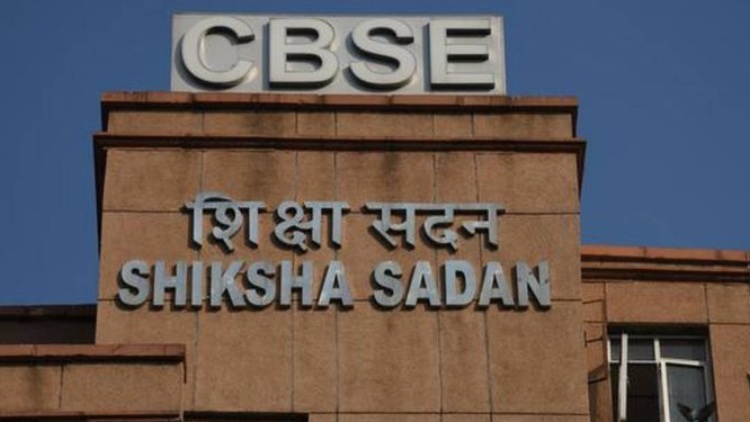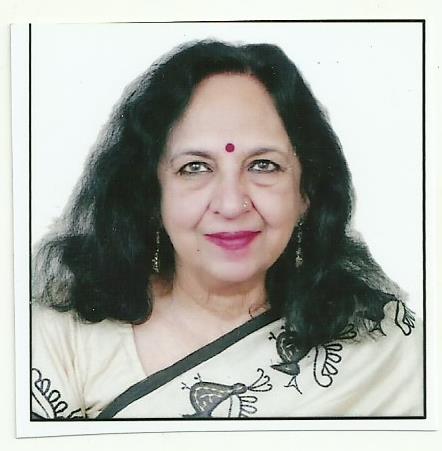
 Dr. Kavita A. Sharma
Dr. Kavita A. Sharma
The pandemic has forced the cancellation of class XII examinations, popularly known as the ‘Boards’, and imposed a different mode of evaluation, based on the results of classes X, XI, and unit tests or mid-term exams or the pre-board examinations that the school may have given. The weightage of marks is to be in the ratio of 30:30:40, that is, 30 per cent for the class X final results, 30 per cent for the class XI final results, and 40 per cent for the class XII pre-board. The scheme has been approved by Supreme Court, which has also asked the Board to constitute a robust grievance redressal mechanism through a committee established for the purpose.
Any student dissatisfied even after the decision of the committee may appear in offline exams whenever it is feasible for the CBSE to hold them. Hardly any student is likely to take this uncertain route as he or she will then miss out on undergraduate admission.
These are far-reaching changes that the Supreme Court has made and one only hopes that they will stay after the pandemic is over, as it will make all the stakeholders involved in the evaluation process more accountable than they currently are. It will also make the students more consistent in their studies instead of just concentrating solely on the Board examinations because their admission to undergraduate depends on its result.
The Board exams are here to stay because of our mindset that only a standardized public examination is impartial and objective. This is far from true because it reproduces the inequities and disparities that prevail in our society and economy. However, while Board exams are important, it is vital that they do not go back to becoming the sole deciding factor in the future career progress of students once the pandemic is over.
Considering the importance of the Class XII Board Exams, it is necessary to establish their credibility which has been severely dented because of very erratic marking; liberal marking includes 100 per cent marks becoming almost common, including in subjects such as social science and humanities on the one hand, and on the other, students getting surprisingly low marks inconsistent with their year-long school performance. In any case, the marks of the Board are obviously not considered very reliable since so many colleges have instituted entrance tests in individual subjects.
Therefore, it is necessary for the evaluation in the Board examinations to become more credible and the accountability of the stakeholders involved in the process, increased. This can only be done by greater transparency, which requires that students have access to their corrected answer scripts. This is undoubtedly a radical suggestion, but the problems in the evaluation system stem mainly from the sanctity attached to confidentiality.
Opaque System
Currently, secrecy clouds the entire process of evaluation, rendering it completely opaque. The entire examination process is shrouded in secrecy from the appointment of examiners, setting of question papers, and preparation of marking scheme and the answer keys, moderation of results, and even the tabulation and uploading of results. This has resulted in many problems because opacity can lead to a lack of accountability. Therefore, no urgency is felt to correct the system.
After the results are announced, there are a plethora of cases in various High Courts of India because students approach them, feeling they have been wrongly evaluated. A study of the orders passed in these cases shows that often things have gone drastically wrong. Sometimes there is even a mix-up in the uploading of marks, especially when there are two candidates with the same name. In some cases, the marking scheme is not followed and fewer marks are awarded to a question than should have been according to the marking scheme. Or, the question itself is ambiguous and can have more than one answer, but the examiner only awards marks according to what is given in the key. Often the marking scheme itself is correct, but there are mistakes in the answers given in the key from which the questions are corrected. It might, therefore, be a good idea to put the answer key on the website of the CBSE after the exams are over. That in itself will prove to be a corrective.
Unfair Evaluation
At the beginning of the 1990s, some of my friends and I had come together to form the Parents Forum for Meaningful Education. Through it, we had put the demand that students should have access to the evaluated answer scripts in front of the then Education Minister Madhavarao Scindia, in 1995. He had thought it to be a good idea but said that he would have to consult the CBSE chief before proceeding. As expected, the CBSE chief said that it was not administratively possible because the number of students taking the exam was extremely large; and the matter fell through.
This, however, is not a tenable argument. After all, the Board already has the required number of centres from where it conducts examinations. The corrected answer scripts can be sent back to the same centres and a window of opportunity can be opened for a few days for the students and their parents to see the evaluated answer scripts. On payment of an appropriate fee, students can be given a photocopy of the answer script with which a student can approach a grievance redressal mechanism that can be set up.
What prompted us to approach the Minister was a heart-breaking case that came to us from Haryana of a science student who had secured very high marks, in the 90s, in all subjects, except one. Finding no other avenue we approached the Consumer Court in Haryana, where it was found that eight continuation sheets of the candidate in that particular subject were missing. The Court offered monetary compensation, but the father of the student declined. All he wanted was that his son should be given marks based on his pre-board examinations to which the Board agreed and also undertook not to appeal the order.
However, it was appealed and the National Consumer Court overturned the order of the State Consumer Court, saying that education cannot be treated as a commercial activity. However, it can be argued that a student pays the fee for his or her education and for appearing in the exams, and, therefore, is entitled to proper services.
The issue of inaccuracy in marking has come up again and again. Some students have taken the RTI route and have often found redressal. Others have approached the High Courts. There is an abundance of case law on the subject. However, the most succinct rationale for the access of students to their corrected answer scripts was given by the Bombay High Court in Paritosh vs MSB., S. and H.S Education (198) AIR Bombay 95. It said that access to evaluated answer scripts would enable the student, “to verify (i) the papers are his own, and (ii) supplementary answer papers are duly tagged, and (iii) all answers are evaluated, and (iv) totals are correct, and (v) marks of his practical or internal assessment are included therein, and (vi) the adverse results are not due to any error or manipulations.”
As of now, the Board depends only on its staff members to do the work of re-totalling in case of an application by the student. However, it deprives the student of an assured self-verification, despite having a vital stake in it.
It is unfortunate that the Supreme Court overturned this judgement, saying that it was satisfied that the procedures adopted by the Board are as error-free as possible. In any case, it felt that there has to be finality to the results declared. Now, the Supreme Court has asked the Board to set up a robust grievance redressal mechanism to resolve the issue if any student is dissatisfied with the final marks. This is a very welcome and big step forward from the earlier practically no-redressal system.
The Board has said has since set up a grievance redressal committee. The question arises how will this committee resolve a dispute? If it is to do it meaningfully, it must evolve a transparent mechanism that should be known to the teachers, students and their parents. This will bring more accountability into the system. If it keeps the process opaque or just re-totals the marks, it will not be of much use. It must be remembered that as of now the Board does not re-evaluate the answer scripts; only the marks are re-counted. Perhaps it is also time to put a revaluation mechanism in place now that changes are taking place. Revaluation can be done if the grievance redressal committee is satisfied that it is needed.
As Justice Mohta pointed out in another case, “the surest mode of making a man casual towards the duties is to make his action infallible…” Opacity and secrecy aid in this. Transparency can only add credibility to the whole exam system and strengthen the Board itself.
(Dr Kavita A Sharma is the former President of South Asian University)
